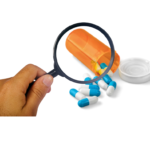Treatments
There are different types of treatments for the multitude of rare diseases: medication medical devices, specialty foods, surgery, physiotherapy, etc. Medication may be drugs used for common conditions or may be specific to a rare disease. The latter are called “orphan drugs “.
What is an orphan drug?
An « orphan » drug is intended for the treatment of a rare disease. In some countries (e.g. United States, European Union, etc.), a pharmaceutical company can apply for its experimental drug to obtain an « “orphan designation” » and thus benefit from certain advantages (financial and others) to continue the research and development of this therapy. If, following clinical trials, the drug is found to be safe and effective and it is authorized for sale, it is then called an “orphan drug.”
In Canada, there is no special program for the development of orphan drugs like the Orphan Drug Act in the United States or the « Orphan Drug Products » program in the European Union.
Did you know that approximately 40% of orphan drugs authorized elsewhere in the world are not available in Canada?
To learn more about the drug evaluation process in Canada, listen to our webinar: Médicaments orphelins : comment on décide s’ils sont mis en marché au Canada, combien ils coûtent et si les gouvernements provinciaux les paient ? »
For more information on orphan drugs and medications in general, consult our webpage: “Drugs – Resources”
Our Orphan Drug Watch Project

Did you know that in Canada we do not use the terms “orphan drug” or “orphan designation”?
This makes it difficult to follow a drug intended for a rare disease through the authorization and evaluation process in Canada. Orphan drugs are buried among the many other drugs in the various databases of government organizations (Canada’s Drug Agency and the Institut national d’excellence en Santé et Services Sociaux du Québec (INESSS).
We monitor orphan drugs that pharmaceutical companies want to market in Canada. We follow the drug through the entire authorization and evaluation process to find out if it will be authorized by Health Canada and whether or not it will be recommended for reimbursement by public drug insurance plans.
We notify patients, caregivers, associations and health professionals when a drug for a rare disease is being evaluated at INESSS. These notices are made through our various platforms (social media, newsletter, email to the people in our contact registry, etc.). We want, among other things, to encourage and help patients/caregivers to participate in INESSS consultations. Your opinion matters! See more details below.
We also collaborate with Canadian associations for evaluations carried out by Canada’s Drug Agency.
Do you want to know more about treatments for your rare disease? Do you want to know if there is an orphan drug in development or on the market? Contact us.
If you have a drug for a rare disease about to be introduced into Canada, let us know!
In Quebec, INESSS is responsible for evaluating medications to determine whether they will be paid for by the government.
Patients, parents or caregivers:
you can participate in this evaluation process

In Quebec, it is the Institut national d’excellence en Santé et Services Sociaux du Québec (INESSS) which evaluates drugs for inclusion on the list of drugs available in pharmacies or hospitals. A scientific committee evaluates each drug, but citizens, patients, caregivers and health professionals can participate in this evaluation.
How to make a comment to INESSS
- See instructions and questionnaires here: A meeting place for patients, caregivers and patient associations
INESSS wants to know:
- What is your quality of life or that of your loved one with this disease?
- What are your current treatments?
- Are these treatments effective?
- Are there any side effects?
- Have you tried the new drug that is being evaluated?
- What is your experience with the new drug?
We can answer your questions about this evaluation process and help you complete the questionnaire. Do not hesitate to contact us.
